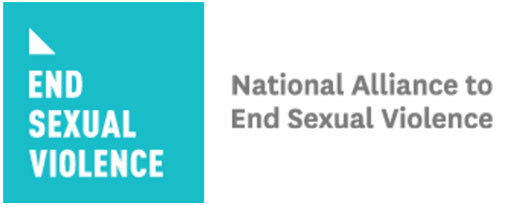The National Alliance to End Sexual Violence supports the sovereignty and self-governance of tribal nations in the United States. Native women suffer the highest rate of both domestic violence and sexual assault in the United States. Native women experience rape, sexual assault, stalking at a rate two to three times higher than all other races.
“Sovereignty” refers to the inherent power of a government to address and respond to its own internal and external affairs. In the context of contemporary indigenous nations, sovereignty refers generally to the right of indigenous nations to make their own laws and be governed by them. Many tribal nations have their own tribal court, law enforcement, as well as tribal laws and codes. In tribal communities that do not have these entities, they still have the inherent right to develop them because of their unique status as a tribal nation and their political relationship to the federal government.
Tribal governments have “inherent sovereignty,” which means that tribal sovereignty cannot be separated from tribal existence. It existed thousands of years before the formation of the United States and continues today, although tribal communities co-exist with the federal and state systems. The federal and state governments do not supersede tribal governments; however the federal system has exerted plenary power over tribes. Over the last 120 years, tribal jurisdiction has been curtailed by a combination of federal laws and U.S. Supreme Court decisions. Tribes find themselves constantly having to explain their sovereign position within their state as well as defending it against further incursions by state or federal governments. Today, there are significant limitations placed on tribal courts in criminal matters. Because of these barriers and restrictions, many tribal governments are not able to actively prosecute sexual assault crimes.
- Tribal courts have no criminal jurisdiction over non-Indians. The Supreme Court ruled in Oliphant v. Suquamish (1978) that tribal governments can only prosecute members of federally-recognized tribes for criminal violations. Therefore, if a non-Indian commits a domestic or sexual assault in Indian country, the case can only be prosecuted in state court or federal court (depending on the particular tribal nation).
- Tribal courts are limited in their ability to sentence convicted offenders. The federal Indian Civil Rights Act limits penalties given out in tribal court to one year in jail and/or a $5,000 fine for each offense. Thus, tribal courts are prevented from imposing more than 365 days incarceration for a crime. Many tribal communities feel that this is too minimal a punishment for crimes such as sexual assault and domestic violence.
- Many tribal nations have extremely limited resources for law enforcement, prosecution, and corrections. As a result, it can be difficult for tribal governments to adequately investigate and prosecute serious crimes which occur on tribal lands. Even if they have a tribal police force, they may not have enough staff to properly respond to all the crimes and needs in their community. Many tribal governments work in partnership with state and/or federal officials in order to attempt to effectively respond to such crimes.
- Some tribal governments experience difficulty in getting federal or state agencies to respond to crimes of domestic violence and sexual assault on tribal lands. This is due in part to a lack of resources, funding, jurisdictional confusion, a misunderstanding of cultural issues, and unawareness of the extent of domestic violence and sexual assault by federal and state law enforcement and courts.
Sexual violence has connections to oppression, domination, power, and control. These are the same tools that have been used against indigenous nations for hundreds of years. Sexual assault, murder, intentional spread of diseases, forced sterilization, forced relocation, and other forms of violence have historically been used in an attempt to destroy indigenous nations.
It is difficult to imagine how Native women can maintain safety if their tribal governments are not able to respond effectively to violent crimes. Supporting sovereignty generally does not constitute an endorsement of every decision or position made by a particular tribe. Rather, supporting sovereignty connotes supporting the right of a nation of people to self-determination.
Violence against Native women is perpetuated by efforts to diminish and deteriorate tribal nation powers. Therefore, supporting Native women necessarily requires supporting tribal sovereignty.


